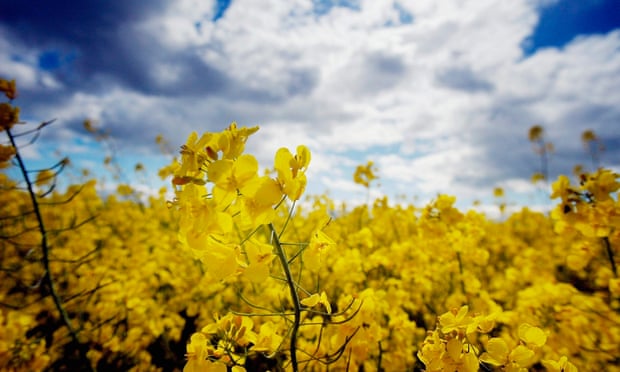A powerful group of scientists and academic bodies has urged the Scottish government to rethink its ban on growing GM crops, with a warning that it would damage farming, healthcare and scientific research.
Nearly 30 organisations – including Edinburgh University, the Roslin Institute (where Dolly the sheep was cloned), the Eden Project, the National Farmers Union and the Science Council – have signed an open letter asking for an urgent meeting with Richard Lochhead, the Scottish environment secretary, to discuss the ban.
Lochhead said the ban, which was widely welcomed by environment campaigners and anti-GM groups, was designed to protect Scotland’s reputation for exporting “clean and green” agricultural produce, but has indicated he would meet its signatories.
The open letter accused Lochhead of taking an openly political decision, not based on scientific advice or evidence. The Scottish government has failed to appoint a chief scientific adviser since Nicola Sturgeon became first minister, and its independent scientific advisory body has not met for a long time.
The signatories claimed that Scottish salmon farmers would miss out on enriched GM fishmeal, using plant-based omega-3 oils to cut impacts on wild fish stocks, or potatoes which would use less fungicide or were designed to withstand blight.
Their protest, coordinated by the pro-biotech and pro-open science campaign group Sense about Science, and backed by the Institute of Directors, follows Lochhead’s announcement earlier this month that he plans to use new European Union rules allowing governments to formally opt out of a new policy to permit far greater GM crop production in Europe.
“There is no evidence of significant demand for GM products by Scottish consumers and I am concerned that allowing GM crops to be grown in Scotland would damage our clean and green brand, thereby gambling with the future of our £14bn food and drink sector,” Lockhead said.
Although his statement was silent on whether the ban on GM crops would prohibit scientific research into GM technologies – an area where its supporters say Scottish research centres excel – a Scottish government spokeswoman told the Guardian it would not do so. Experiments and testing in closed facilities would still be allowed, she said.
The letter’s signatories said: “By banning their use in Scotland, this country would be prevented from benefiting from future innovations in agriculture, fisheries and healthcare, and consigned to continued use of the old. We are thus extremely concerned about the potential negative effect on science in Scotland.”
Last week, Prof Muffy Calder, who stood down as Scotland’s chief scientific adviser in December but has not yet been replaced, warned that the ban could have an “apocalyptic effect” if a plant disease spread which Scottish crops were not protected against.
She said she was angry and disappointed that ministers had pressed on with the ban application to the EU. “The ban seemed to be based on a perception of demand and fear of consumer backlash, not on any scientific evidence about GM crops themselves,” Calder said.
Prof Neva Haites, vice-president for life sciences at the Royal Society of Edinburgh, said the RSE was now compiling an advice paper on the benefits of GM crops for Lochhead. “He’s missing the point that green also involves protecting our environment from too many chemicals; green also means producing plants that are actually low allergen in terms of some people’s sensitivities to them,” she told BBC Radio Scotland.
Scotland’s farmers, research centres and biotechnology sector risk become uncompetitive, Haites said. “As long as it’s a properly regulated biotechnology industry, Scotland has everything to gain from actually using technology that has been approved and found to be sound,” she said.


View all comments >
comments
Sign in or create your Guardian account to join the discussion.
This discussion is closed for comments.
We’re doing some maintenance right now. You can still read comments, but please come back later to add your own.
Commenting has been disabled for this account (why?)